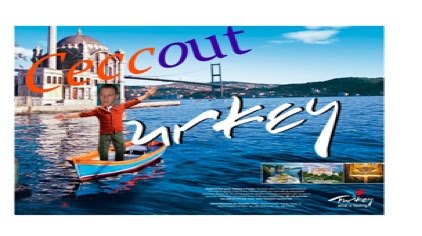If the west of Turkey is the star of the family, the southeast is the child least understood. From a distance it seems bitter and unapproachable, but take a minute to sit down with it, and its cold demeanor unravels.
Which is really what the last two weeks were- an honest, objective conversation with a region that has long be demonized by its western counterpart.
Starting from the furthest east, Van was our takeoff point into adventure. A city resting in between towering mountains, this 'pearl of the east' feels as if it stands at the edge of the world. And in a sense, in the context of the Turkish world, it does. It balances on the precipice of the Iranian border, yet manages to retain a unique indentity far removed from the modernization of its western brethren.
After touring the markets, summiting the revered Rock of Van and dining with an ex-smuggler (allegedly), the journey turned south, and a odorous bus brought us to Hakkari. Along the way, the trip was broken up by a staccato of military checkpoints. Intimidating at first, they soon became a repetitive bore. Set up by the jandarma as a means of weeding out Kurdish rebels (often associated with the PKK) the points became more frequent the deeper into the south we drove.
The checkpoints reminded me why I was there- to see, first hand, the Kurdish area of Turkey. Kurds are the largest minority in Turkey (some numbers suggest as high was 18 million), and this area has been at the centre of conflict since the 1980's. Post military coup, the Kurdish militant movement for a recognized, autonomous state of Kurdistan turned bloody, and terrorist attacks were launched by the PKK (the Kurdistan Workers Party). The result was swift action by the military, and the subsequent burning of hundreds of villages. Tens of thousands were killed throughout the 1990's, tarnishing the region for years to come.
It is for this reason that the area has been held at arm's length by most Turkish people. My aim was to see if it was really that bad. Undoubtedly atrocities had been committed there in years past, but what would it be like for a foreigner to journey along the winding mountain roads?
From Hakkari to Cizre, northern Iraq, Mardin and Diyarbakir, we were met with the most intense generosity and kindness that can be imagined. Paying for meals was difficult, conversation easy and warm, and the disposition of Kurdish locals was one of intrigue. Not once during the trip, amid the rolling tanks and armed guards, did I feel unsafe. We were welcomed into homes- we were approached on the street. People just want to say 'hi'. And 'welcome'.
The way of life, the people, and the overall atmosphere is a sharp break from the speed, affluence and lifestyle of cities like Izmir, Istanbul and Ankara. But it was a welcome, tranquil break.
Being virtually the only tourist in the region, it gave me an amplified sense of how isolated this area is from the other side of the country. The villagers spoke about how they didn't want much, just to preserve their culture. The conversations raised questions of national identity and autonomy- problems we have yet to fully solve back in Canada. It is a nuanced, complex debate, and one that is neither understood nor solved in a mere two week visit. But the tour of the area gave a face to a demon- and the face was one that did not match the body.
After seeing beautiful architecture set beside sprawling slums, after touring back alleys and mountain passes, I came to the realization that the area had been unfairly portrayed as a war-torn danger zone. While it has its problems like every area, the opinions formed about it, and then spread around the commentary circuit, are often by people who never visit. And in that, it becomes a tragedy. An entire chunk of the country becomes taboo among those who have no real reason to hold those sentiments. And so the problem persists- many continue to look down on the east as a lower, lesser developed part of the nation.
When I told Turkish friends I would be going to this area, virtually all (except for one) told me it was a bad idea. I might be shot. Or kidnapped. And yet the result was the exact opposite- I was welcomed with earnest hospitality.
While I won't pretend that my experience can serve as proxy for all those that venture into this area, it highlights the dubiousness of rumour and hearsay, and shows that they must be challenged personally before one can even begin to understand a nation's problems.
For photos of the journey from Van to Sanliurfa, go to www.flickr.com/photos/lcecco
Sunday, February 14, 2010
Subscribe to:
Post Comments (Atom)

No comments:
Post a Comment